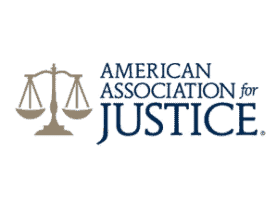Nursing homes are supposed to be safe havens for our elderly loved ones-places where they can be carefully looked after, administered proper medication and treated with kindness and hospitality. Unfortunately, this is not always the case, and when problems arise with mistreatment, action should be taken.
According to the Centers for Disease Control, there are more than half a million reported cases of elder abuse in the United States each year. In addition to this staggering statistic, because thousands of cases go undiscovered and unreported, we predict the actual number is considerably higher. When you also factor in elder abuse by in-home or private care workers, that number can rise even higher and demonstrate how much of a pandemic this problem is in our country.
In 1987, Congress passed the Nursing Home Reform Act. The act applies to all nursing home facilities receiving Medicare and Medicaid funding from the government. Under the act, nursing homes “must provide services and activities to attain the highest practicable physical, mental, and psychological well-being of each resident in accordance with a written plan of care.” To ensure these policies are being followed, nursing homes receiving federal funds are subject to periodic unannounced visits by federal investigators. When found to be in violation of the provisions of the act, Medicare and Medicaid may deny continued funding.
The elderly are most vulnerable when they become very dependent on nursing home care or staff. Physical handicaps and/or Alzheimer’s or dementia make the elderly at these facilities easy subjects for abusive nursing home staff memberrs.
Some examples of nursing home abuse can include: bedsores, infections, dehydration, malnutrition, slipping and falling due to an unwatchful caretaker, unnecessary restaraint, and physical and/or sexual abuse.
Nursing homes are required to hire properly trained associates to interact and deal with their elderly clients, but this is not always the case. In order to cut corners or preserve costs, sometimes nursing homes will skimp on training or caliber of employees, and this can lead to poor results.
If you believe a loved one might have been involved in a nursing home abuse case, there are some steps to take to pursue a case. First, listen to your loved one who has experienced the care. Even if they do not tell you, look at their body or health and try to gauge clues from differences in behavior or demeanor or appearance to see if mistreatment occurred. Also, speak with staff members, caretakers and owners at the nursing home facilities. Speak with families of other patients so you can get their stories or opinions. Take photos of your loved ones injuries or sickness to have evidence and a way to compare. If you do suspect abuse is happening, remove your elderly loved one from the facility immediately and seek legal guidance.
If you believe you or a loved one has suffered from abuse while at a nursing home, contact the lawyers at the Law Office of Richard M. Kenny today. Our attorneys have over a combined century of experience dealing with cases like these and have sustained over $250 million in verdicts and settlements to prove our success rate. Our attorneys are caring individuals who will work tirelessly on your behalf to get the results that you want and deserve. Call our office today.











